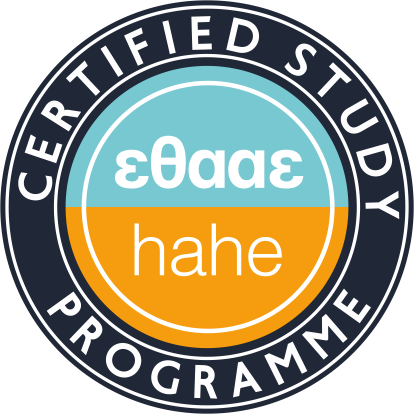Advanced Biochemistry
- Membranes – signal transduction. Signaling pathways coupled with G proteins.
- cΑΜΡ pathway, protein kinase Α.
- cΑΜΡ receptors (Epac), activation protein kinase Β (Akt).
- Phosphoinisitide pathway, protein kinase C.
- Ca2+ signalling
- Tyrosine kinases, small G proteins, ΡΙ-3 kinase, protein kinase B activation (Akt).
- ΜΑΡ kinases ( ERK1,2, JNKs, p38).
- ΝΟ signaling pathways, cGMP, protein kinase G.
- Lateral compartmentalization and function of the cytoplasmic membrane: eisosomes and transmembrane transporters
- Transcription factors (CREB, CREM, NF-kB, AP-1, STAT) and their activation.
- Prostaglandins.
- Steroid hormones.
- Signaling pathways of main cytokines and growth factors, IL-1, TNF-α, TGF-β (SMAD proteins), PDGF, EGF, FGF.
- Interaction of ECM and cells.
- Integration of metabolism in prokaryotes and eukaryotes. Control mechanisms of metabolism of carbohydrates, proteins and fats.
- Protein Structure - Experimental and Theoretical Approaches.
Biochemical Analysis – Clinical Biochemistry
- Liquid chromatography (gel, ion-exchange, affinity). Theory, applications.
- HPLC: Theory, techniques, applications. GC: Applications. SFC: Theory, applications.
- Electrophoresis: Theory and techniques. Capillary electrophoresis: Applications.
- Enzyme in analysis: Chemistry and applications of enzymes, biosensors.
- Radionucleids in analysis.
- Immunoenzymatic analytical methods: Theory, techniques, applications.
- Automatisation in analysis, Modern auto-analyzers,
- Methods selection criteria - Development of analytical methods.
- Selection of methods for the analysis of biological fluids.
- Basic Physiology (nervous system, liver, gallbladder, pancreas).
- Biochemistry of the main organs and endocrine glands.
- Control of organs and endocrine glands functions.
- Evaluation of results.
- Analysis of metabolites, drugs and toxic substances.
- Chemical ecology: Applications of bioactive secondary metabolites of natural origin.
- Methods of analysis and study of proteins, lipids and carbohydrates.
Literature Review and Research Methodology
- Searching, recording and presenting the bibliography related to the postgraduate diploma thesis.
- A series of lectures on contemporary issues of specialization and issues related to the development of communication skills and IT skills.
- Bibliographic overview of the research field of the subject of Postgraduate Diploma Thesis and its public presentation.




